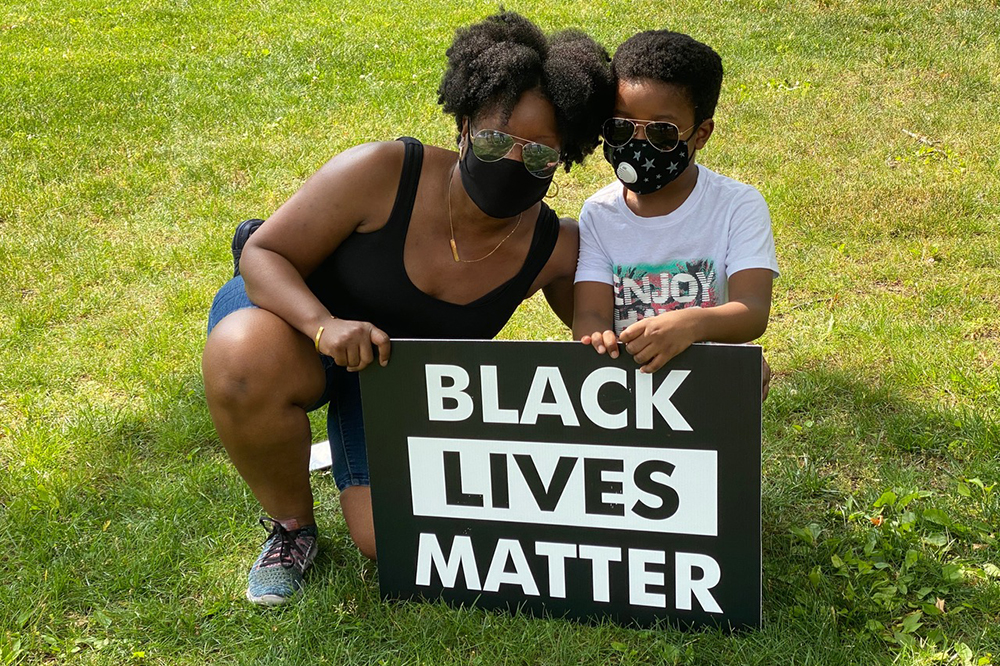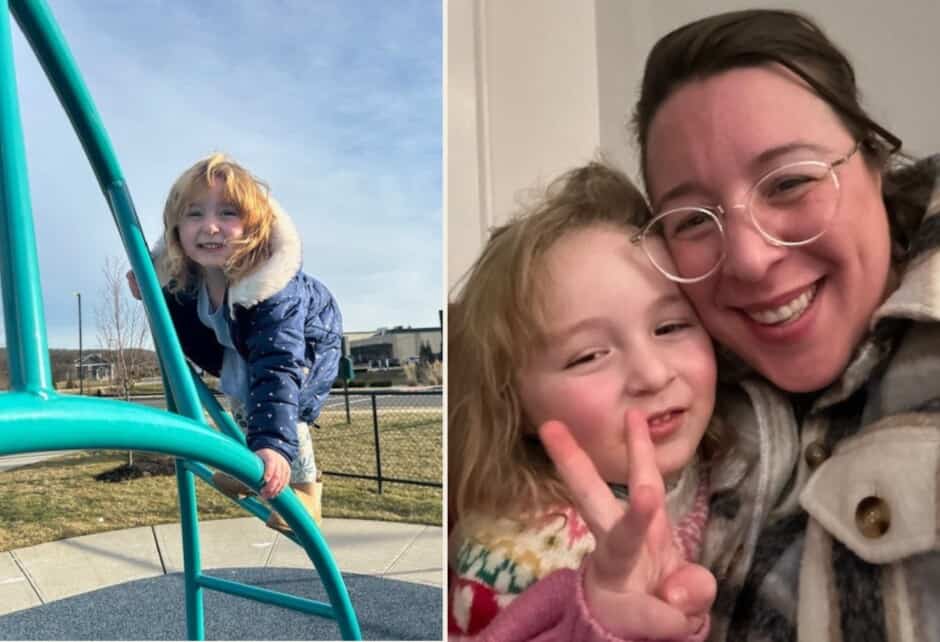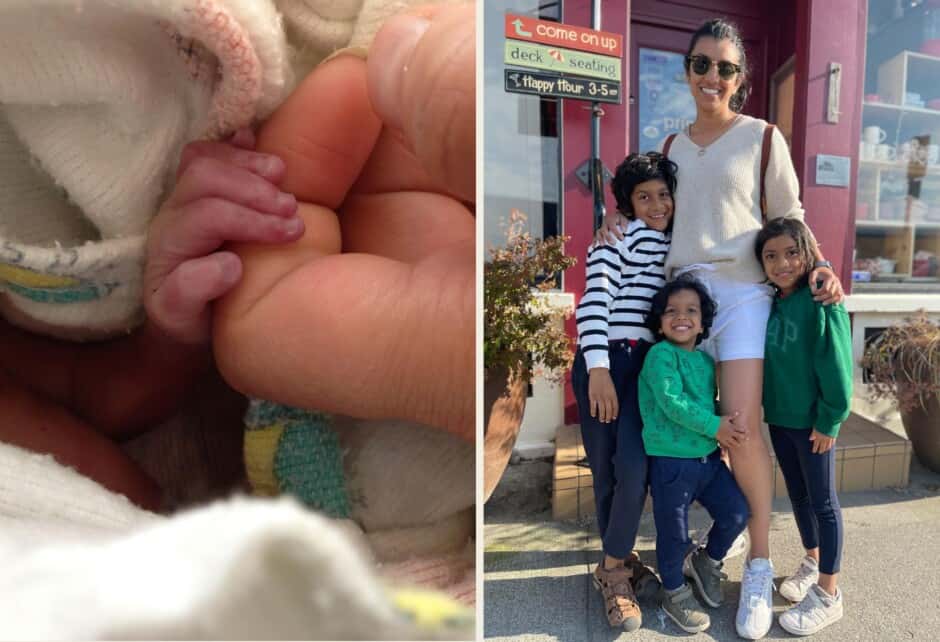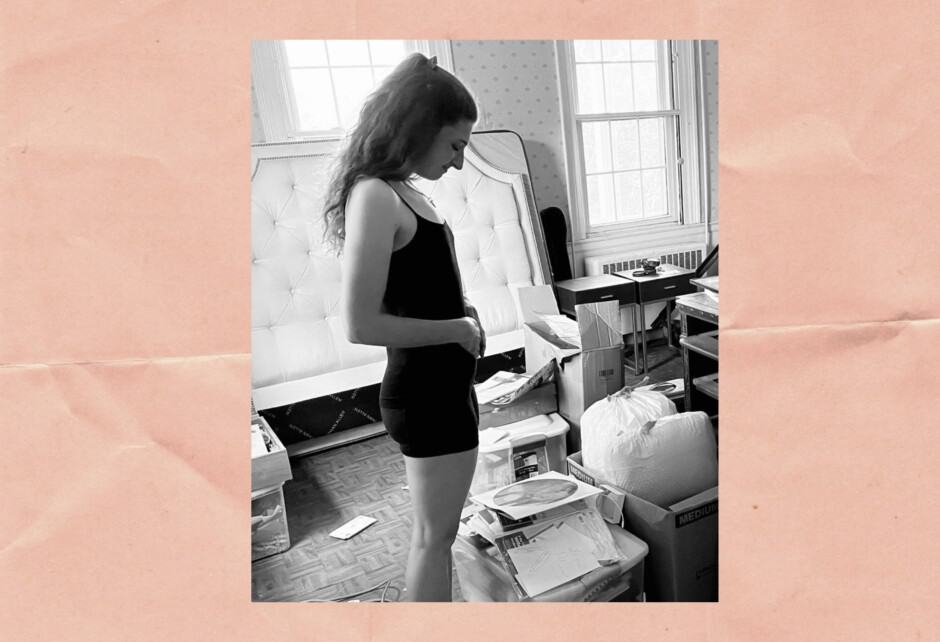
Mom Talk: Tokenizing My Black Son At A BLM Rally Is Not White Allyship
Written by Terri Linton
Photography by Photo Courtesy Of Terri Linton
If you read just one article on MOTHER this week, we suggest it be this one. In today’s Mom Talk essay, writer, podcaster, professor, and mother of one Terri Linton opens up about her experience at a recent Black Lives Matter rally involving a White stranger taking a picture of her 7-year-old son, Jaxon, and his friend. “She wasn’t enamored by the adorableness of our boys; she was desirous of their Blackness—to control, manipulate, and commoditize at a time when Black lives supposedly matter to White folks,” writes Linton. Read on for more of her disheartening, eye-opening, and deeply touching story.
Somewhere there’s a White woman with a picture of my seven-year-old son and his buddy in her cell phone. Neither I nor the parents of my son’s friend know her. We didn’t give her permission to take the photo nor did she ask. She simply spotted the boys as they sat catching their breaths after a rivalrous round of tag, walked up to them, and snapped their picture. This happened at the end of a Black Lives Matter walk.
When the woman took the photo, I had no idea what was unfolding. Several feet away, I stood listening to community leaders urge the mostly wealthy White crowd, many outfitted with Black Lives Matter placards, to use their privilege to help others who “don’t look like them.” As they clapped and nodded in seeming solidarity, I scanned the masked faces for some indicia of insincerity. Their blue and brown eyes were in no way revelatory; nonetheless, I knew everyone who’d assembled couldn’t truly be an ally, even if they believed themselves to be. My skepticism has been validated time and again when it comes to White people and their commitment to anti-racism. I suspected that for some, the day they marched in support of Black lives would amount to no more than a proud moment that’d fade with the passage of time.
“I’m not going to argue with you,” insisted the father of my son’s friend. He was squared in front of an older White couple. Their stand-off, along with the police officer stationed on the adjacent corner, propelled my steps. By the time I reached my friend and his wife, the pair were crossing the street and leaving.
“What happened?”
“That woman just took a picture of the boys. She walked up to them, pulled out her phone, and took it.”
The incredulity I felt blanketed his face.
“Without asking?”
“Not only didn’t she ask, but when I told her not to do it again, she said she can do what she wants. Then she said that it’s a day of peace, and asked whether I trusted her. When I told her I don’t know her to trust her, she said that her husband is a judge.”
Fury simmered in my chest. My mind flipped to the conversation I had with my mother a day prior. I questioned whether my son attending school and my attending grad school in the town where the walk was to be held were substantial enough reasons to participate. I imagined slapping the phone out of her hand and calling her out in front of everyone for tokenizing our sons. I pictured exposing her as a fraud who didn’t belong at any Black Lives Matter march because clearly, to her, they still didn’t.
This woman wielded White supremacy to objectify two little Black boys. She ignored the protestations of my friend who had every right to protect his son as well as mine. She didn’t see him as a father shielding the boys from the unknown intentions of a stranger, but rather a meddlesome interloper to be put in his place. To her, the boys’ bodies weren’t theirs in which to peacefully exist, but rather things upon which to intrude and treat like props for a photo. She’d likely use the picture to bolster her false narrative of White allyship within her social circles. She wasn’t enamored by the adorableness of our boys; she was desirous of their Blackness—to control, manipulate, and commoditize at a time when Black lives supposedly matter to White folks.
Had my friend become loud or taken a single step toward her, she would’ve surely deployed fear or tears to position herself as the victim and him as a threat. The police officer stationed on the corner would’ve been activated. And what could’ve followed? We all know the possibilities.
The more I recalled the incident, I concluded that her actions were emblematic of a larger problem. Black people cannot live freely in this country. The slew of “Karen” cases are evidence of White people feeling affronted by Black people simply living their lives whether barbecuing, shopping, eating in a restaurant, walking in a park, or birdwatching. The list of living while Black offenses is unending.
Last summer, I experienced this. A summer tradition is to meet my best friend and her daughter at a beach in Rye, New York, and enjoy a day of fun with our kids who are our respective god-children. While my friend and I chatted under umbrellas, the kids busied themselves building sand castles at the water’s edge. My long-legged god-daughter sprinted towards us, with my son lagging behind and calling out to her. A White woman beaching alone several feet away, placed her call on hold and ordered my son to stop yelling. I jumped to my feet, and within seconds, was standing inches from her towel.
“Don’t yell at my son. You speak to me.”
“He shouldn’t be screaming.”
“They’re playing. If you want quiet, perhaps you shouldn’t be looking for it at a public beach.”
Her eyes flashed at my audacity. The big brim of her sunhat flapped in synchronicity with the wag of the finger she directed at me.
“I live in Rye and pay taxes here,” she snapped.
“Well I don’t, yet we paid to be here.”
“Lady,” she drawled, gathering her belongings, “I’m not arguing with you.”
She got up and resettled herself in a spot farther away from us. Soon after, a Latino family claimed one alongside her. They played music while their three kids squealed running back and forth between their blanket and the water. My friend and I delighted in their good time and the woman’s bubbling irritation. It wasn’t long before her big brim was again flapping and index finger pointing. Like us, she just couldn’t let them be.
What Black people want is what White people have been privileged to enjoy as a birthright: to feel safe in their bodies; to have the freedom to move about unencumbered; to not live in perpetual terror of being hunted like an animal; to simply be. White allyship is not hollow declarations that Black lives matter; or curated social media posts reminding of stolen Black lives at the hands of the police; or disposable cash donations to bail funds and Black businesses. White allyship involves painstaking self-work.
It’s contemplating the ways in which you’ve used your race and privilege to oppress or render Black people invisible—and never doing it again. It’s paying Black people equitably for their work. It’s decentering yourself in academic and professional spaces so that the Black people in the room can be seen and heard. It’s challenging the racist ideologies of those sitting around your dinner table. It’s recognizing the ways in which the lived experience of Black people vastly differs from yours and considering why. It’s not taking a picture of my son and his friend as they giggle under the shade of a tree.
It’s doing nothing at all to disturb a couple of little Black boys’ joy.
Are you a mother with something to say? Send us an email to be considered for our “Mom Talk” column.
Share this story



